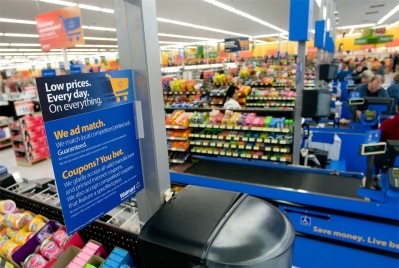Evolving tool helps quantify sustainability of food

LCA as applied to food products was the subject of a talk given by Ashley Foster, sustainability manager at SCS Global Services, a company that provides third-party environmental, sustainability and food quality certification, auditing, testing and standards development. Foster presented the latest developments in the use of the standard at the Sustainable Foods Summit in San Francisco last week.
LCA as a tool has been around for a while, said Stan Rhodes,PhD, president and CEO of SCS.
“LCA as a scientific metholody was first standardized in 2000,” he told FoodNavigator-USA.
“It was agreed on by 125 countries as a guideline on how to do these assessments,” he said. “It’s complex. It is used by major industries and by governments to do these assessments.”
Steel vs. wood
LCA is used for a variety of functions, Rhodes said. It could, for example, be used to make a judgment of whether using steel beams or wood studs for construction is more sustainable, by looking at the environmental impacts of mining vs. forestry, the pollution involved and how much energy is needed to bring each product to market and to its end point in a structure and also what waste is left from the product’s application.
In food production, LCA would look at all of the inputs for a given food, including the environmental and human health costs. These could include issues surrounding the production and application of herbicides, pesticides and chemical fertilizers. It could also look at the energy inputs; a product produced locally would score better than one that arrived via cargo aircraft, for example.
“It looks at all the fundamentals of where you start in a process and provides a quantitative account of impacts of all the inputs you use for food production,” Rhodes said.
“It goes through all of that and then it goes through the handling process, storage, distribution and disposal.”
Food assessments are complex
The example given of applying LCA to steel vs. wood is somewhat straightforward, Rhodes said, though some players might not like the results the tool yields. But food is a whole different animal, he said.
“When you look at foods it gets very complex,” Rhodes said. "For example, when you look at frozen food, sometimes it can be stored for a year before it is sold. All of that refrigeration is part of the impact of that food.”
“And when you look at fresh as an option, it can vary all over the map depending on where it is grown and how it is grown, where it goes and how fast it goes,” Rhodes said. “And canned foods, once you retort them some of the nutrition does go out of them, but then it's stable and can be held for a long time with no further impacts.”
Coming up with a better tool
The LCA process agreed upon in 2000 unfortunately was not specific enough, Rhodes said, and has “gone in a thousand different directions.” SCS is part of a group that is refining the tool to come up with a better way to assess food impacts.
“Compared to the conventional LCA, in which you only look at eight to 10 parameters, the new standard will require you to look at 25,” Rhodes said.
Not all food systems would incorporate all 25 parameters, Rhodes said. Most would involve look at 14 to 18.
CO2 vx. N20
Rhodes gave an assessment of lettuce production as an example of how the tool might be used and how it could yield surprising results. The amount of carbon dioxide emitted in the production and transport of lettuce is fairly easily quantified, and the action of CO2 as a greenhouse gas is well understood.
But conventional lettuce is grown with heavy fertilizer application and all that fertlizer in the soil emits nitrous oxide (N20). According to the Environmental Protection Agency, as a greenhouse gas N20 is 300 times more potent than CO2.
So a locally-grown conventional head of lettuce could in theory have more impact on the greenhouse gas measure than produce grown with fewer fertilizer inputs that was shipped a long distance.
Rhodes said he expect the new standard, now in draft form, to be ready to submit to the American National Standard Institute by the end of May. The document was developed in concert with stakeholders that included The Sierra Club and the World Resources Institute.
An end to greenwashing
Rhodes said it is hoped the new standard will quell the practice of greenwashing, in which companies apply various shady metrics to put a sustainability imprimatur on their activities.
This was made easier by the vagueness of the LCA tool as it was agreed upon in 2000, Rhodes said. Some stakeholders were able to construct their own “greenwashing LCAs,” he said.
“It is a potent tool. Not everybody likes the results. It’s going to disrupt current LCA practice because it is going to bring full transparency,” Rhodes said.


















